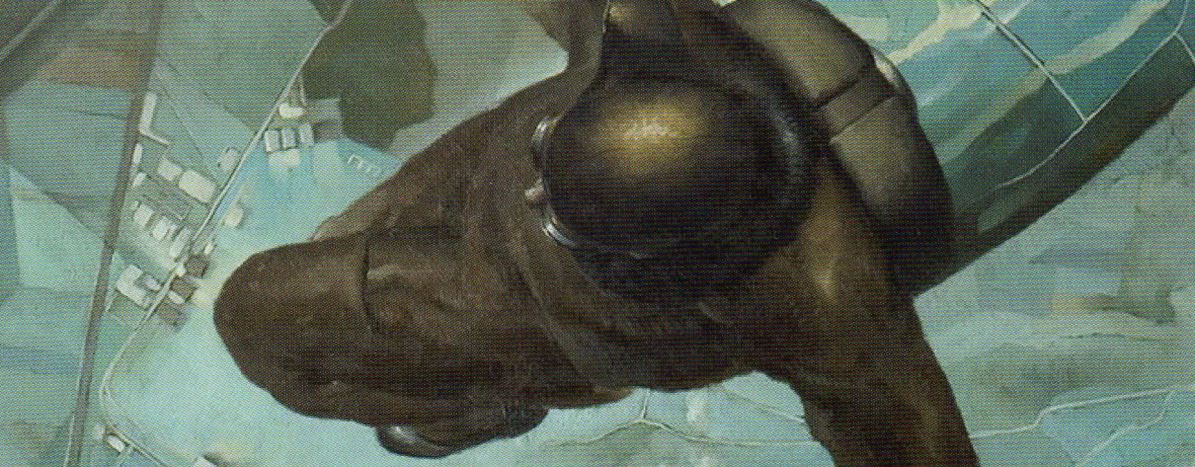
Edinburgh Fringe 2016: The Nine Lives of Antoine de Saint-Exupéry
Published on
"Man is a knot of relationships – only relationships are important to Man." (Antoine de Saint-Exupéry - Flight to Arras, 1942)
If the point of a theatrical production is to produce catharsis, as Aristotle claimed, this play by Vagabond Productions certainly worked on me: the tears were running down my face by the end.
The play is about the life (or lives) of Antoine de Saint-Exupéry, probably best known as the writer of The Little Prince. But before he wrote his best-selling story, before he wrote any of his books, Saint-Exupéry was a pilot, flying the mail planes for the French Aéropostale company, first on the Toulouse-Dakar route and later in Argentina. From a young age he had been fascinated by planes, and he adored flying. The play begins during World War II, when Saint-Exupéry, determined to contribute to the war effort (despite being past the maximum age for pilots –he was 44) as part of the Free French Air Force in North Africa, is about to fly on a reconnaissance mission over France. It will be his last flight, and during it, memories from his life, and people he has shared it with, appear to him in a series of flashbacks.
As Saint-Exupéry (Bart Vanlaere) comes on stage he goes straight to a chessboard on one side, talking to the other character who follows him, dressed in black (Louise Seyffert), and moves a chess piece on the board. The two return to the board every so often to make another move, and this works as game, dance and dialogue, becoming particularly close at critical times in Saint-Exupéry's life. There was his first crash landing; then a bout of near fatal fever; another crash-landing in the desert with hardly any food or water (which is said to have inspired The Little Prince) and a near-miraculous rescue; and a third, where he was in a coma for several days with multiple bone fractures.
Seyffert plays all the other characters too – Saint-Exupéry's mother, his co-pilot Henri Guillaumet, and his fiery and spirited wife, Consuelo. In one scene, when he first meets her, he invites her for a spin in his plane and terrifies her by cutting the engine and refusing to start it again until she kisses him. And in another, several years after their marriage, Consuelo becomes jealous of his lady admirers, once he has become a celebrated writer. (Her suspicions were justified, for while Saint-Exupéry never stopped loving her, their relationship was stormy).
Every so often, a crackly voice can be heard: the radio control from his headquarters on the ground trying to get in touch with him, bringing him and (us) too back to the present, when he is flying on this fatal reconnaissance mission over southern France.
The acting is superb, capturing the different emotions of the major relationships in Saint-Exupéry's life. His character and philosophy is shown to be an ineradicable part of the man – his distaste for an increasingly mechanized world where "man has gone astray with his clever technology...one cog follows another...we need a spiritual life." He believes in brotherhood, where every individual is necessary and important, creating the whole, just as "each stone is ennobled by being part of a cathedral". He demonstrates too, the simplicity and directness of his feelings and love for others and the importance of participating fully in life rather than being a bystander.
As he says in Pilote de Guerre/Flight to Arras: "What am I if not a participant? In order to be I must participate......to be a bystander...is the liberty not to exist. There is no growth except in the fulfilment of obligations."
Much like The Little Prince, his feelings come from the heart. He longs to go back home, he is full of courage and curiosity and his relationship with Death – never one of fear – derives its intimacy precisely from his embrace of life's excitements, adventures and danger. Seyffert, with minimal costume alterations, is so skilful in the way she changes characters, both in her body movements and in the different voices she uses, with their changes in tone, delivery and accents.
Vagabond Productions have written a splendid script incorporating some of Saint-Exupéry's best-known quotes, and packing his drama-filled life into an hour of adept portrayals. And if you are not familiar with St. Exupéry's writings, which have been described asthe best books about flying that you will ever read, I would highly recommend them. They're more than just books about flying: they are also wonderfully written meditations on the nature and the meaning of human existence.
Five stars
---



